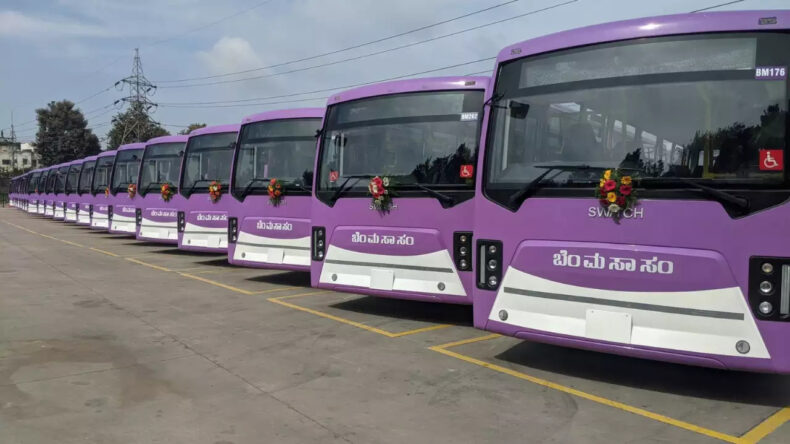The Bangalore Metropolitan Transport corporation has announced that it will deploy around 1,900 BMTC buses in the city by the end of the year. Out of 1,900 buses, 921 have been revealed to be low-floor electric buses.
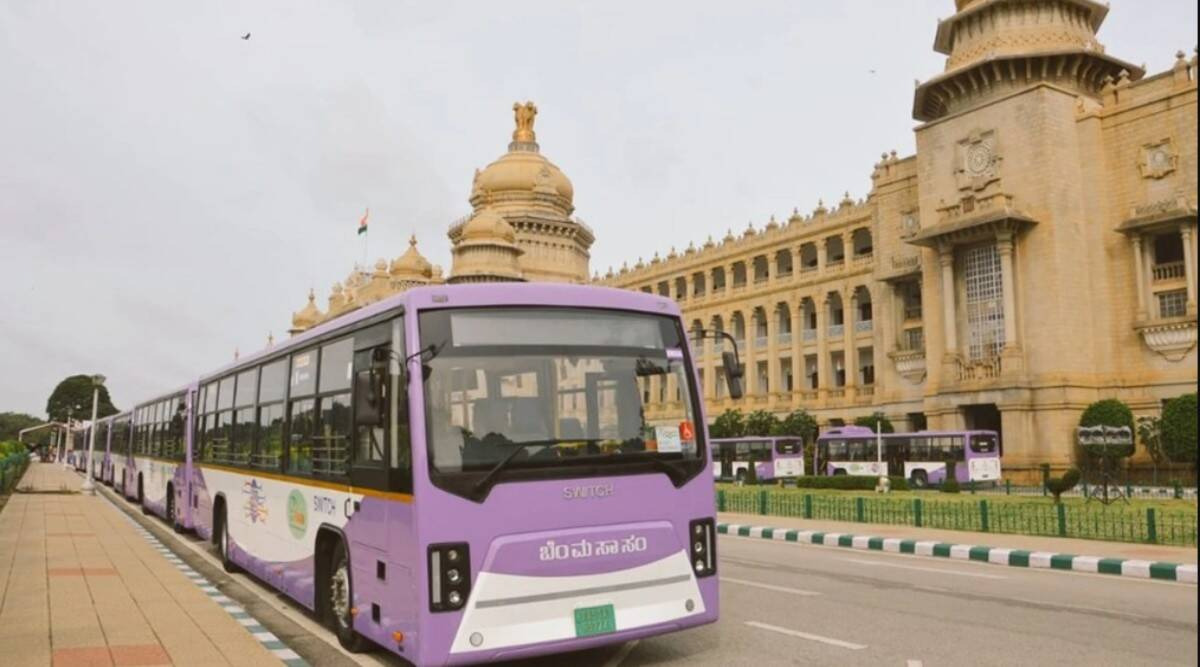
Image Source: The Indian Express
The buses will not start running around the city simultaneously but instead will come in the batches of 100 every month, starting from the end of July. To Promote carbon neutrality in the city and improve air quality, the state has been making similar efforts by promoting electric vehicles and setting up charging points at every corner.
Supplier of BMTC buses
The order of 921 buses was bagged by a subsidy of Tata Motors called- TML Smart Mobility Solutions. To show their reliability, the company has already sent one bus as a completed version to BMTC.
The Chief mechanical engineer of BMTC, Srinivas said that after they have received the vehicle, it will take around 3-4 days to complete the registration process. After the e-bus has been registered they will launch it on the road.
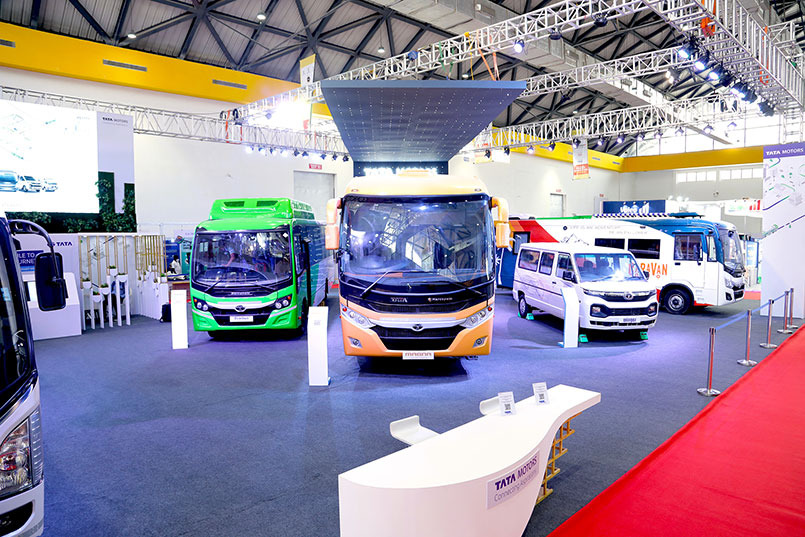
Image source: Tata Motors
The bus will be observed for a few days to see the reaction of people as well as the vehicle’s reliability. After this hurdle passes, TML Smart Mobility Solutions will start to deliver the other 920 buses in the agreed manner of 100 batches every month.
Benefits of Low-Floor Buses
Bengaluru has a very well-connected network of buses. Lakhs of people travel from the BMTC buses daily to reach their office or other destinations. As the state is adopting greener methods of public transportation, they are also paying attention to other comforts and technologies present in the buses.
The low-floor electric buses are made with the intention to reduce unexpected accidents of motorists or pedestrians coming under the big vehicle.
Apart from this, it will become easier for elderly, children and specially abled people to board and get-off the bus in a much easier and safer manner.
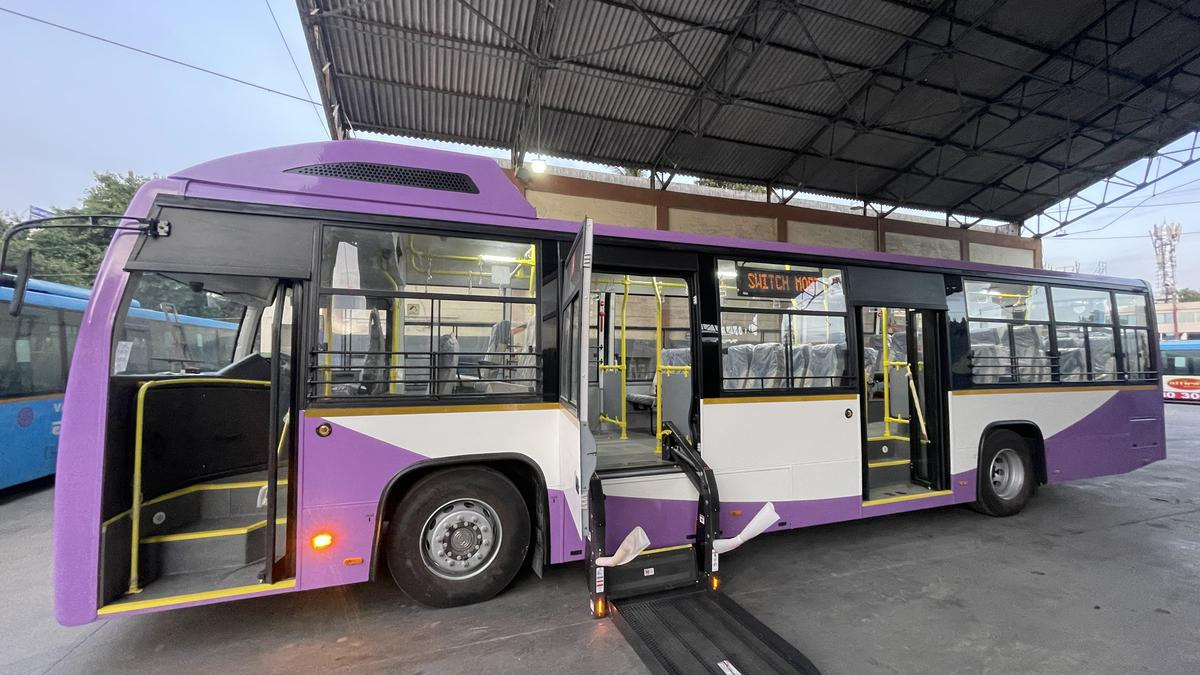
Image source: Murali Kumar K
Buses that have a high-floor from the ground have been seen to cause many accidents of people falling while getting off, twisting their foot, inability to control the gravity of the body etc. With low-floor e-buses this problem will be reduced substantially.
Partnership of Tata and BMTC
SML will be providing BMTC buses along with drivers to the transport corporation. They will be using the Gross Cost Contract model where Tata motors will be responsible for providing the buses and the drivers to BMTC for INR 41 per kilometre. In simple terms, BMTC buses are hired by the corporation from Tata motors for INR 41/km.
Whereas BMTC will be responsible for setting up routes of these buses, the timings, frequency and the conductor aboard the e-buses
The manufacturing company will also be responsible for the maintenance of the buses.
Order of Diesel Buses
Though the state is promoting green means of public transportation, BMTC buses will also have a batch of diesel buses delivered. The number of conventional buses will amount to 840 and according to Srinivas, they might be the very last batch of diesel buses ordered as the city will focus more on electric vehicles.
The order of diesel buses is also being supplied by Tata Motors and has been revealed to be acquired by BMTC at a price of 41.3 lakh per bus.
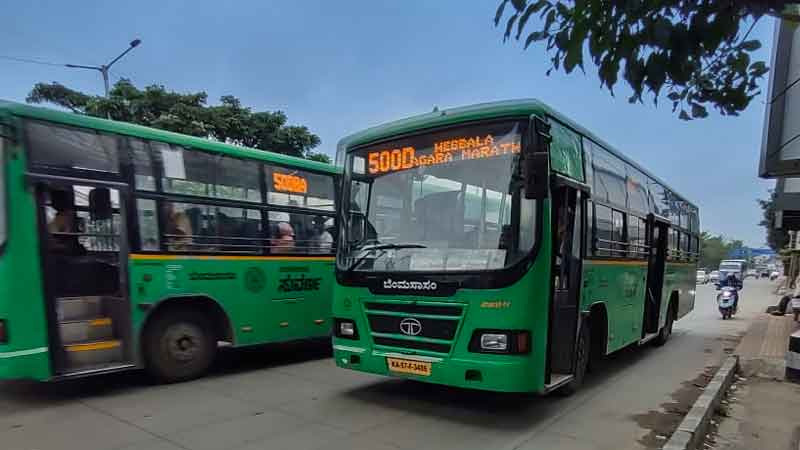
Image source: Bangalore 24/7
Twenty buses are already running on a trial run.
Why are electric BMTC buses hired and diesel BMTC buses purchased?
The vehicles running on diesel can be acquired at a maximum of 45 lakh per vehicle, which the corporation is able and ready to bear. On the other hand, electric buses have a high-upfront cost and can go as high as two crore. So hiring the buses through the GCC model is more economical for the state.
There are also other types of electric buses that the BMTC is trying to acquire. It has planned to order 10 double decker e-buses and 120 mini e-buses and bring them on the road by the end of the year.







